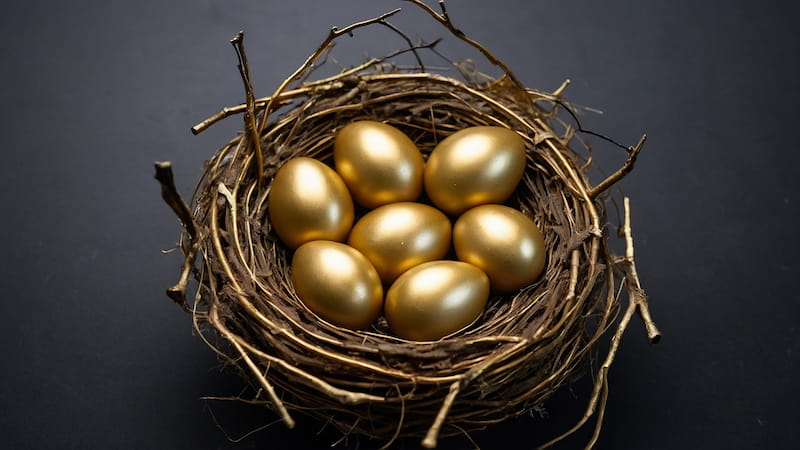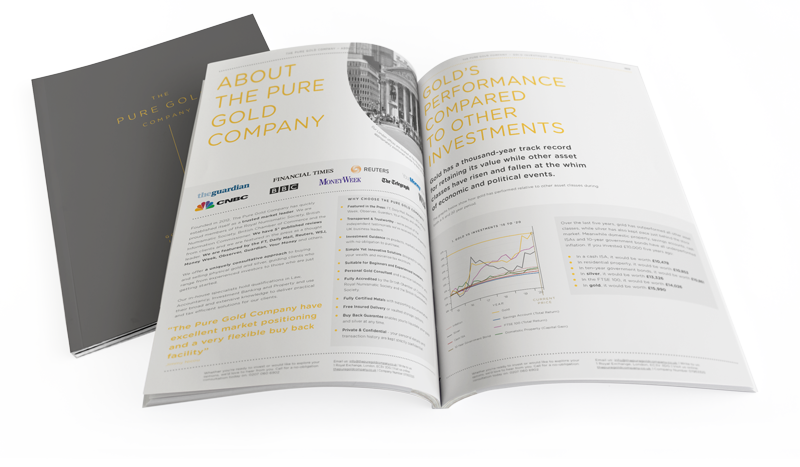There was a time not too long ago when we weren’t to be trusted to make important decisions about our own future. The options on what you could do with your pension pot were severely limited, ostensibly to protect us from taking all our pensions out in one go and frittering it away with no thought for a comfortable retirement. Now most of us are in control, and the options are extensive and perhaps daunting. So how should you invest your tax-free pension lump sum, should you decide to take it? The answer is to look for the right balance of assets that are protected from market risk while still providing a return.
How much can I take tax-free from my pension?
Ten years ago, then-chancellor George Osbourne’s pension reforms opened-up the pensions market and enabled people to take much more control of their future income than before. Since 2015, those over 55 have had the freedom to withdraw some or all of their pension pots to use as they wish, whether or not they have retired, although this will rise to 57 in 2028.
Before 2015, withdrawals were largely nominal and only available to people with small pension pots. Now the value of the entire pension can be withdrawn, although 75% of it will be taxable – potentially heavily. The first 25% withdrawal is tax-free though, and some people may choose to take a lump sum and invest it outside of their pension in assets that suit their circumstances.
Obviously, the risk profile of someone approaching retirement is likely to be somewhat different to someone younger who is just starting on their investment journey. Diversifying any investments to spread the risk is key to protecting decades of hard-earned pension value. A balanced basket could include assets like equities, property, bonds, cash and alternative assets like gold, to hedge against the inherent risk of the other assets.
Investing in Equities
The COVID-19 pandemic was devastating for some pension investments, especially ones with substantial share exposure, and for some, the long road to recovery has also been impacted by the Russia/Ukraine war, rampant inflation and a surge in interest rates.
2023 was another difficult year for pension investments, which are usually a mixed basket of equities and bonds. A rise in interest rates can hit bond returns because typically, when interest is high, bonds become less valuable and earn less interest. Pension investments were also hit by volatility in the markets, although the very gloomy recession-filled outlook that was touted at the start of 2023 failed to materialise. While there has been a slight recovery in the stock market, those who plan to retire soon will still be feeling the effects of both Covid and interest rates.
If you’re investing your pension lump sum now, the 2024 outlook for the stock markets is yet another mixed picture. Conflicting forecasts of a soft landing (economies avoid a recession and begin to grow slowly) or a hard landing (economies fall into recession and struggle to get back to growth) can be confusing and unhelpful. The UK fell into recession in the second half of 2023, although the data is delayed so we only heard about it in February 2024. Not by much (0.3%), but enough to show that the economic environment is very strained.
This can be an opportunity to buy stocks in a down market, but the possibility of markets falling this year remains very real. JP Morgan believes equity markets are facing a more challenging macroeconomic backdrop in 2024. “Lacklustre earnings growth and geopolitical risks are set to weigh on the outlook for stocks” the investment bank said in a research note. There’s very little consensus in the market. A comprehensive round-up of 2024 investment outlook reports by the Financial Times shows that no-one really knows what the future holds. And this potential for volatility can be risky for retirees.
That said most investment portfolios will include some stock market exposure so selecting stocks individually or entrusting them to an index or investment fund would be a reasonable start in building a diversified portfolio.
Pension Property Investments
The rapid rise in interest rates between December 2021 and August 2023 forced many potential buyers out of the property market as mortgage rates surged just as we all were dealing with 40-year high inflation. The cost-of-living crisis has eased somewhat, with inflation lower than its peak and mortgage rates also coming off highs. But even though the peaks have softened somewhat, inflation is still stubbornly above the 2% Bank of England target, and many homeowners are coming off fixed rate mortgage deals that had been set when interest rates were near zero, and are now facing substantial hikes in their monthly payments.
Physical Gold And Pensions
Discover the benefits of investing in physical gold through your SIPP with our handy guide.

This has impacted the property market, with prices falling for the sixth month in a row according to the latest data from the Office for National Statistics (ONS). Prices fell 1.4% in December, which is actually better than November, when house prices fell 2.3%. If the downward pressure on property markets is easing, it may be a good time to consider investing your pension lump sum in property.
Retirees investing in property and looking to generate an income from buy-to-let, or solidify their own housing situation, should consider investing if it suits their requirements. It’s worth remembering that retirees who don’t have the wherewithal to manage a buy-to-let property will need to factor a management company into their costs and rental income.
Investing in Premium Bonds.
Premium bonds are a government savings tool that work on an ‘interest lottery’ basis, which means each bond is entered into a monthly lottery draw. If you don’t ‘win a prize,’ your investment is safe, but it doesn’t grow, however, the more you invest in buying premium bonds, the more you increase your chances of winning and earning a return. In addition, the winnings are tax-free which can be a significant boon for people who have already used their tax-free personal savings allowance. You can invest up to £50,000 in premium bonds and the prizes range from £25 to £1 million monthly.
Investing in ISAs
Interest earned in an individual savings account (ISA) is tax-free. Adults can invest up to £20,000 per year in either a cash or stocks and shares ISA, or a combination of both. You can choose to manage your investments within the ISA or select one that is managed based on your risk profile and preferences (these will incur management fees).
ISAs have become one of the most popular savings vehicles since their introduction two decades ago. ISAs are essentially taxed on the way in (because tax has already been paid on income), whereas pensions for the most part are taxed on the way out (because pension savings are not taxed until they are drawn as income), however, putting the 25% tax-free pension lump sum into an ISA is tax-free at both ends.
Investing in Physical Gold
Gold is classed as an alternative investment, alongside items that appreciate over time like antiques, art, collectibles and fine wines. The benefit of gold is that it has thousands of years of historical value preservation behind it. Even as the price has fluctuated, gold has retained its value through many crises.
As a safe-haven asset, it usually increases as other asset classes fall. While it may not pay out a dividend or interest, its inverse relationship to other assets means it is used as a hedge against uncertainty and risk. This makes it particularly useful for retirees who are looking to remove as much risk as possible from the investments they make with their pension lump sum.
Certain types of gold have the added benefit of being tax-free. The VAT was removed from investment grade gold in 2000, and gold coins like gold Britannia’s and gold Sovereigns are capital gains tax-free because they are legal tender; this means a tax-free pension lump sum can remain out of reach of HMRC when invested in gold.
Like all other investments, gold should form only part of a portfolio, with the balance of risk tailored to suit each circumstance and person.
When can I invest my pension lump sum?
Right now you can take up to 25% tax-free from a defined contribution pension from the age of 55, but this will rise to 57 in 2028. Whilst it is possible to get a lump sum from a defined benefit pension scheme, very few financial advisers would facilitate this for you unless it is already in the scheme rules. There is a huge (55%) tax penalty for taking the money out of any pension before you turn 55.
If you choose to take the tax-free lump sum, the remainder can stay in the pension pot, accruing interest or dividends with the potential to keep growing while retirees draw down on it over time.
Annuities are also still a viable option for people who want a guaranteed income for their lifetime, and there is now a much wider range of options that cater for different requirements. If a lump sum is not required, retirees can take a series of withdrawals over time, a quarter of each will be tax-free. However, you choose to manage your pension pot, risks need to be balanced and all your golden eggs shouldn’t go in one basket.


